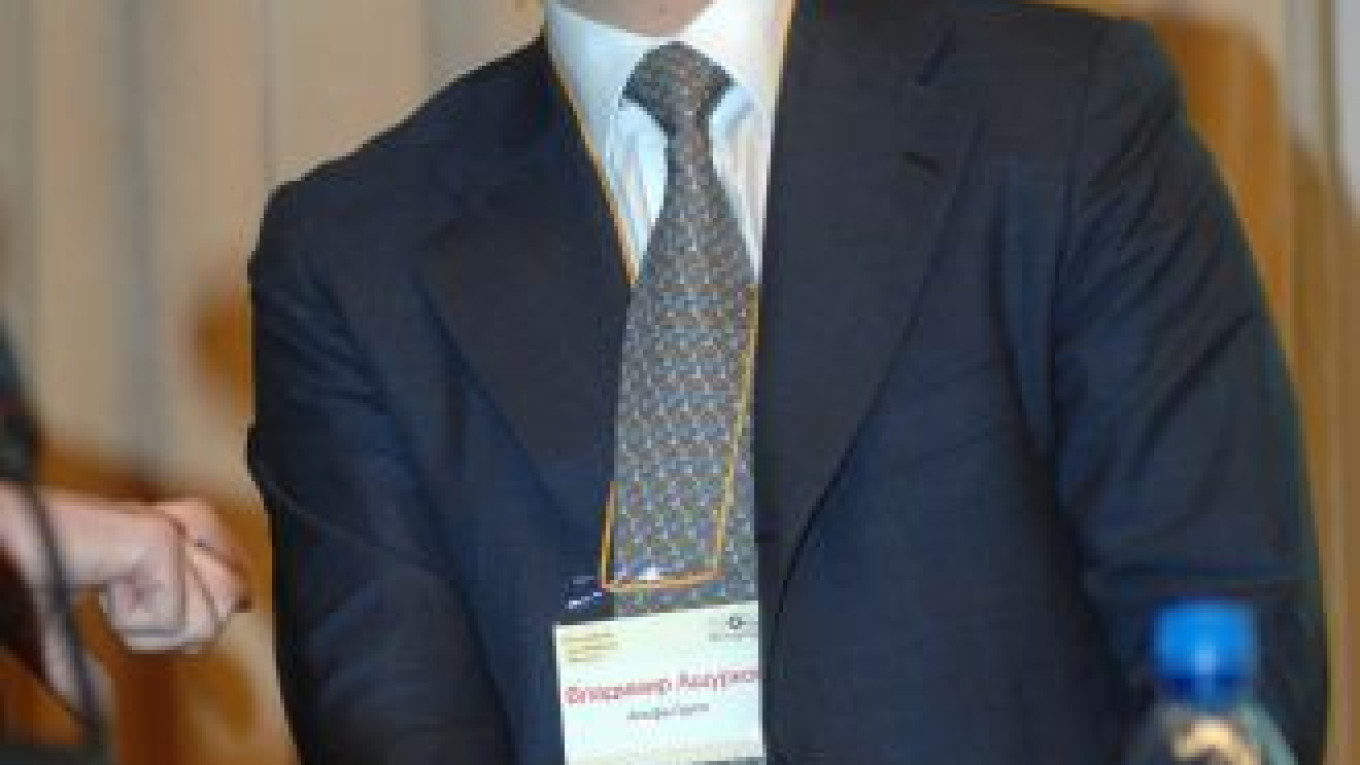Investigators on Thursday raided the apartment of Vladimir Ashurkov, director of the Foundation for Fighting Corruption and an anti-Kremlin activist, in connection with a criminal case against opposition leader Alexei Navalny.
Navalny, who started the foundation, is accused of stealing 100 million rubles ($3.3 million) from the now-defunct Union of Right Forces liberal opposition party in 2007. Navalny denies the charges, which were announced by investigators in December.
In Thursday's raid, investigators seized documents and electronic equipment including computers, Navalny tweeted. An Investigative Committee representative said the confiscated materials were related to the theft case, Interfax reported.
Navalny, who is a practicing lawyer, wrote on his blog that he went to Ashurkov's apartment to offer him legal assistance but that investigators blocked him from entering.
Navalny alleged that the seizures were designed to paralyze the activity of the anti-corruption foundation and had nothing to do with the criminal case, noting that he was not acquainted with Ashurkov in 2007.
He said he believed investigators wanted to "dig around in them [the seized electronics] and find something interesting/compromising."
Ashurkov's cell phone, which was seized by investigators in Thursday's raid, was turned off, and other attempts to reach him for comment were unsuccessful.
A U.S.-educated former Alfa Group executive, Ashurkov took the helm at Navalny's Foundation for Fighting Corruption last year. The foundation is an umbrella body for projects including the tracker of state tenders RosPil, pothole-busting RosYama, election monitor RosVybory and volunteer coordinator Good Vehicle of Truth.
Ashurkov is also a member of the Coordination Council, an unofficial body charged with making key decisions for the nonparliamentary opposition.
Investigators did not say Thursday what connection Ashurkov might have to the theft case against Navalny, one of three criminal cases open against the opposition leader.
The case relating to the Union of Right Forces has no stated victims. Navalny, who says he has not been officially charged in the case, is suspected of receiving 100 million rubles for providing advertising services to the party and then transferring the money to shell companies.
Investigators based their opening of the case on the fact that they had not found any document confirming that the contract for the advertising services had been fulfilled.
Former members of the party have said government agencies have all the relevant documents.
A number of high-profile figures have been questioned by investigators as part of the case, including former party leader and current Kirov region Governor Nikita Belykh, former party co-leader and current liberal opposition leader Boris Nemtsov, former party presidium member Maria Gaidar, deputy head of the party's political council Leonid Gozman and television presenter Vladimir Solovyov.
All of them have denied that money disappeared from the party and have said the case is politically motivated.
Contact the author at e.kravtsova@imedia.ru
Related articles:
A Message from The Moscow Times:
Dear readers,
We are facing unprecedented challenges. Russia's Prosecutor General's Office has designated The Moscow Times as an "undesirable" organization, criminalizing our work and putting our staff at risk of prosecution. This follows our earlier unjust labeling as a "foreign agent."
These actions are direct attempts to silence independent journalism in Russia. The authorities claim our work "discredits the decisions of the Russian leadership." We see things differently: we strive to provide accurate, unbiased reporting on Russia.
We, the journalists of The Moscow Times, refuse to be silenced. But to continue our work, we need your help.
Your support, no matter how small, makes a world of difference. If you can, please support us monthly starting from just $2. It's quick to set up, and every contribution makes a significant impact.
By supporting The Moscow Times, you're defending open, independent journalism in the face of repression. Thank you for standing with us.
Remind me later.


